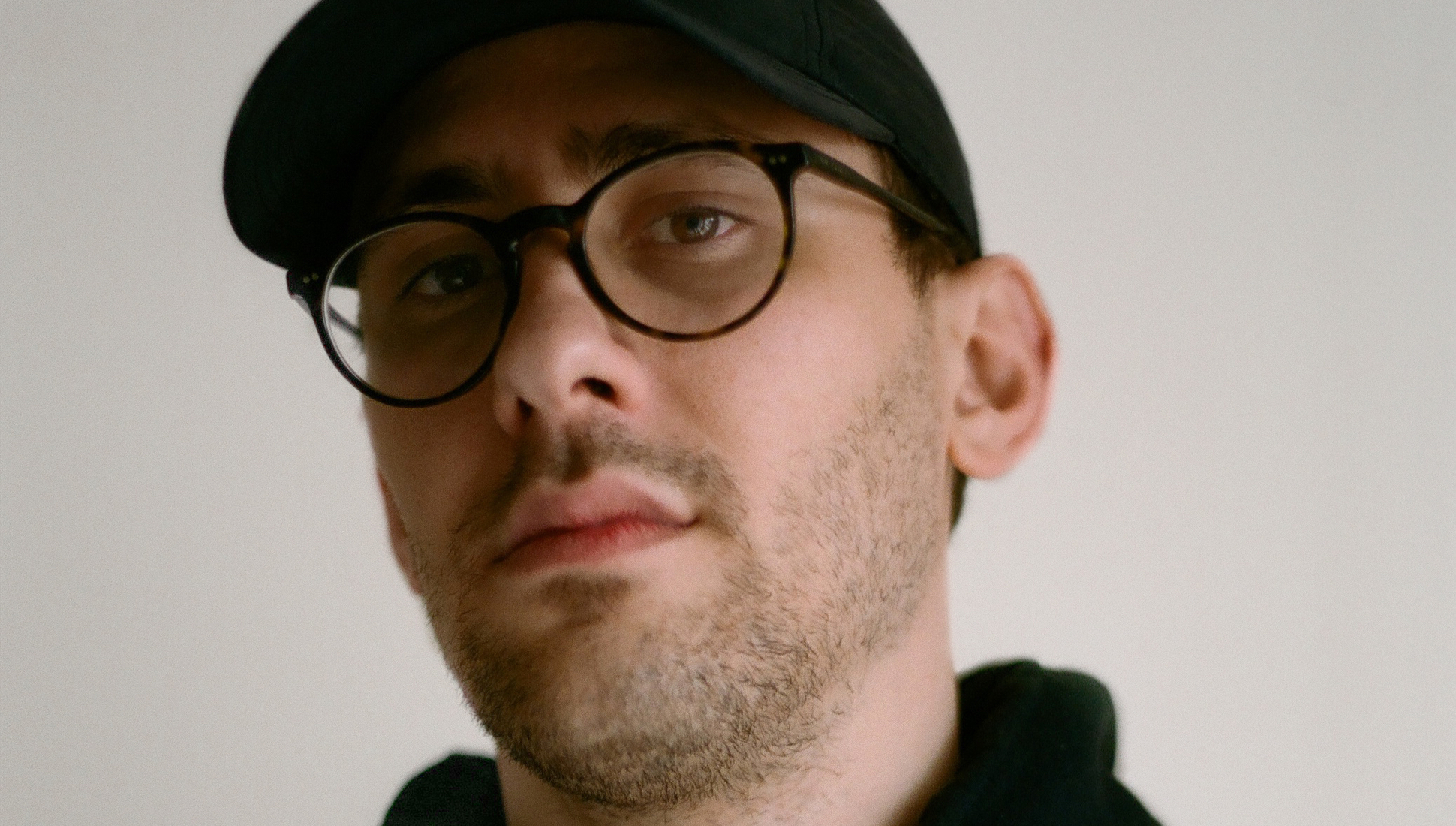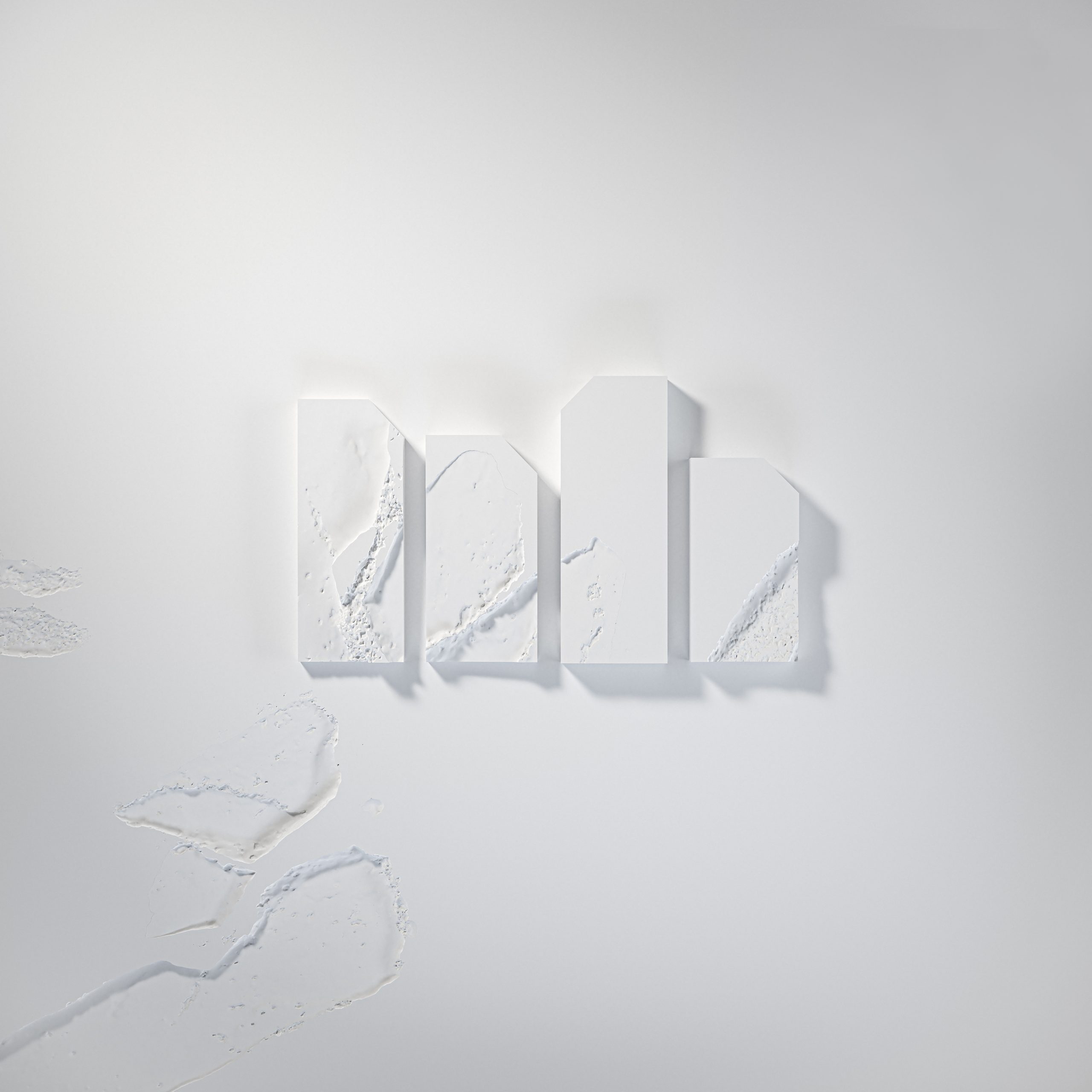

TSVI on Nervous Horizon
IN CONVERSATION WITH RISING EAST LONDON LABEL, COMMUNITY AND ITS SOUND CREATOR TVSI.
On the heels of Nervous Horizon's latest Various Artist release NH V/A VOL.4, we caught up with one of its founding members, TSVI aka Anunaku, to talk East London, comfort zones and influences.
S: Everything I've read about the label and your work is reflected in the releases. You literally hear what you read and have a very interesting approach to Nervous Horizon.
Nervous Horizon, the artists on the label, the history, you guys, it's very friendly and open-hearted I would say. It reminds me a little bit of the Heroes Journey that Joseph Campell analysed. So in this interview I want to go on that journey to get to the bottom of your myth, how you became "torchbearers of the mutating London club scene" as Crack Magazine calls you. Not that I think there's anything wrong with that. If you look at the artists you work with, the producers and people who give you feedback, and generally the name you've made for yourself around Nervous Horizons, it's huge. Donato Dozzy, Enuha, DJ Plead, Joy O, Scratcha DVA, object blue, Happa, phew....
What is your philosophy in Life?
T: I think we all have different visions and approaches to life. That makes it hard to make things happen sometimes, because things can get a bit chaotic, but in a way that's why they work and keep working. Hard to explain.
The way we met, how we started the journey and how we made it work is funny and strange at the same time. We come from the same place in Italy, but we all met here. We share the same passion and we all realised that we really wanted to leave a mark. We have different tastes, different habits, different ways of living. We've reached a point now where it's no longer 'us', it's Nervous Horizon. It is the label that leads.
S: You are four founders of Nervous Horizon who met in London, despite the fact that you are all from Italy. Tommaso, Guglielmo, Wallwork, TVSI and Federico. I only found out about the label recently, and from my research it looks like a threshold moment in the "life" of the label. There is a before and an after, a beginning and an end, in a philosophical way. The end of something old and the beginning of something new. I mean, moving to East London, building a studio and making music, being motivated by Scratcha DVA, pressing your stuff on vinyl, the Boiler Room, the feedback on the releases.... sounds like a fairytale, but in every fairytale there are hurdles to overcome to get the reward. To me it sounds like hard work coming to fruition.
Is that how you see it or is it constantly evolving, step by step?
T: It evolves, I guess, step by step. What seemed unachievable at first started to get smaller and smaller and so on, as it is with everything. You really need to believe what you're doing to make it work. I guess we were lucky to find each other, to motivate each other and to be solid and consistent. I guess that really makes the difference, in everything. In music, it could be hard to make it in London, but it's all about being solid, believing.
Hard work, sharing a passion and a mission, being in the right place at the right time, being consistent with the things that make us happy are all part of the equation.
S: A radical decision to move out of your comfort zone can end up in a sea of possibilities. Did you have to go out of your comfort zone to embark on this adventure and are there still those moments that come with the popularity of the labels where you think "ok wow, I have to think about that, I didn't think about that"?
T: Well there are a few memorable moments where we were faced with difficult decisions such as moving in a warehouse in Hackney Wick so we could have our own studio on the day our old landlord kicked us out of our old flat, or simply playing radio shows when we were still not sure if we wanted people to listen to our own stuff... sometimes there are trains you can't miss, but you have to be out there to catch them...
S: Was there a moment when you thought this is all cool but I would rather do something else?
T: We think about it all the time, I guess... it's easier to pursue personal goals, you can be your own boss... when there are 3 of you, different backgrounds, education and so on, it gets messy, but ultimately it takes on a very sweet taste as good things come out of chaos and sometimes out of imperfections, mistakes...
S: For those who don't know Hackney Wick, what does it mean for Londoners, for the city, for the culture that's there and what does it mean for the heritage of the label?
T: Just as there's always a before and after, there's also a where... Hackney Wick is our where. It meant freedom, no preconceptions, space and a playground, a studio. To find an analogy, it could be the moment when the universe was created. There was a before, but the after is when reality as we know it began to take shape. Now it's more like Shoreditch, the place to be, drink and party, where flats are 10k per sq metre. Not really as cool as before tbf.
S: Nervous Horizon is described as part of the shift in genres... So your impact on the culture and the community is quite strong. What kind of responsibility do you see or feel when you read that your work, your passion and maybe even your right intentions have so much influence?
T: "Is it actually?" That’s what I think now that I read the question :) We feel overwhelmed and grateful for the love and support we receive. We don't see it as a responsibility I guess, we just do what we like and what we're good at. After all - excluding what we personally produce - the music is made by other young and extremely talented producers. Are they shaping Nervous Horizon then...? Is Nervous Horizon shaping their music? It's like the chicken and egg thing :)
S: Is there a greater vision?
T: Releasing more music and being more consistent, opening up to new sounds and genres, becoming bigger.
S: I think the pandemic affected a generation of ravers in a way. I mean two years of young people not being able to have those club experiences because they were only connected through the internet, not feeling the kind of community life that nightlife brings, slowly becoming part of a crew, everything that comes with "growing up on the job" which you also describe in other interviews, meeting people, knowing people, making connections and so on, that also changed because people left their positions, new people came in, a new landscape of digital platforms.... so many factors.
What do you think these two opposite things have done to the music scene after the pandemic? On one side a new landscape and on the other side this time gap for younger people?
T: The pandemic shaped people's lives and it surely shaped producers' music. For sure a lot of emerging artists were forced to stop, but if the passion is real it will come back. If it doesn't, then it's good to focus on other things.
Making music is a way of living and expressing. I don't mean at all the pandemic was a good source of feelings, but music is made of emotions and the past 2 years were intense and a strong source of emotions.
S: Enjoying is the core motivation in your work. I mean...not 24/7, I guess. Let’s say when producing music...there must be moments of frustration, too. Do you remember the last one and what solution did you find?
T: When moments of frustration happen, I usually tend to listen to different genres of music or watch movies. That usually works.
S: Do you mix and master the music yourself or do you pass it on to someone in your crew or do the artists do it? And while we're at it, is there some sort of secret weapon for the mixes that you have to make it sound one way or the other? Do you try certain things in the studio and in the mixing process, like the basses, the mastering engineer you work with, or even re-recording mixes? I once heard an interview with a composer, I think I forgot his name, but I remember him saying that he uses a technique of Lee Scratch Perry, who showed him once in London, that he re-records his mix on a certain type of speaker to make the bass more punchy. Do you do experiments like that?
T: We send the music to professional studios to be mastered and then we mix it.
S: Have you played the latest Nervous Horizon releases NH V/A VOL. 4 on the dance floor and how was the experience/feedback? Is there maybe a conversation or story with one of them that sticks out and you can share?
T: I've played every track out, usually the more functional ones go down really well, others (the more challenging ones) take the dancers by surprise, exactly what we wanted! (Guglie)
S: I want to talk a about Ultima Esuna and the fact that you recently played at the Yu Yu Club in Mexico City. How did you get in touch with Ultima Esuna or what was the connection?
T: We never actually played together, it was just me at Yu Yu. We found Ultima Esuna on Soundcloud, Tommy found her connected to Dj Python's label, we contacted her and started chatting. Hopefully after the track on the NH comp she will make an EP for us, its currently in the works!
S: How was the gig at Yu Yu? Have you played in Mexico City before? 16. What do you remember most about the trip to Mexico City?
T: The gig was great, one of the best gigs of my NA tour. It was my first time in Mexico City, such a beautiful place, I really would like to move there soon.
Tracklist:
- 01. TSVI - Tambo
- 02. Ultima Esuna - Salidas
- 03. Josi Devil - Breathe Easy
- 04. Wallwork - Slime
- 05. Ehua - Deepstaria
- 06. Happa - Glacial Breaks
- 07. Aquarian - Saule Dub
- 08. SIM - Hollow
- 09. Seven Orbits - Tallinn
- 10. Chrisman - Mediocre
- 11. DJ JM - Rammed
- 12. DJ Plead - RB C
- 13. TSVI - Drama Demon
